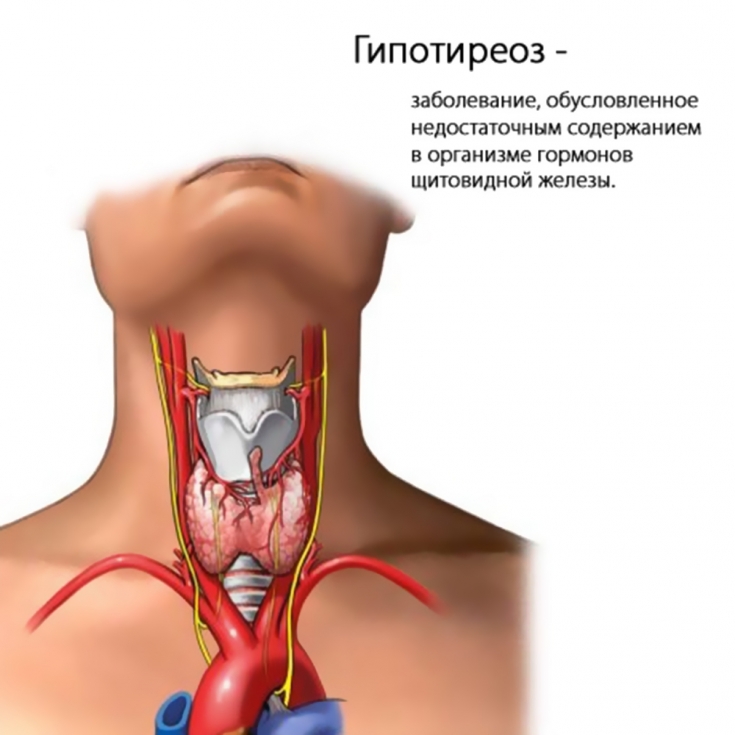Observations show that about every tenth cosmetologist's patient has autoimmune thyroiditis. Sometimes women know about this and undergo proper therapy under the supervision of an endocrinologist. But it also happens that the beautician is the first to pay attention to the characteristic signs of hypothyroidism – clinical syndrome of autoimmune thyroiditis, since the patient writes off changes in the skin or hair to other causes or simply does not pay attention to them. How to build a care strategy and what procedures are acceptable for hypothyroidism in women, read on estet-portal.com.
Why does hypothyroidism happen in women and how does it affect the skin
Autoimmune thyroiditis is a disease where the immune cells in our body begin to perceive thyroid tissue as foreign and attack it. The tissues gradually begin to break down, the gland is no longer able to synthesize the required amount of thyroid hormones, their shortage develops – hypothyroidism.
The reasons why immune cells suddenly begin to show aggression towards thyroid tissues have not been fully clarified by scientists. It is assumed that a factor of a genetic defect in the immune system may be involved, due to which various morphological changes occur in the cells of the gland.
The following can provoke the development of autoimmune thyroiditis:
• increased radiation levels;
• excessive intake of iodine from water, foods or drugs;
• smoking;
• pregnancy;
• Lithium supplementation;
• use of radiopaque agents in examinations.
Hypothyroidism has quite a few external manifestations, but they are non-specific, and women do not pay attention to them for a long time or explain them by various reasons. Disturbed synthesis of thyroid hormones is manifested by the fact that the patient is constantly chilly, inexplicably gaining weight, experiencing drowsiness and unwillingness to move, chronic fatigue. With hypothyroidism, constipation is not uncommon, hair begins to break and fall out, and not only on the head.
In patients with hypothyroidism in the stage of subcompensation, the metabolism of hyaluronic acid is impaired. This is manifested by an increase in the hydrophilicity of the skin.
Typical sign of hypothyroidism in a patient, which should be paid attention to first of all – it is edematous pale skin. The face, as a rule, is puffy to one degree or another, the skin is pasty. A more detailed examination shows that the skin is dry, with a thinned epidermis. In places, areas of hyperkeratosis are possible. Perspiration and sebum secretion are reduced.

How and when it is allowed to carry out injection procedures for hypothyroidism in women
Against the background of a persistent lack of thyroid hormones and disorders in the functioning of the immune system, any procedures accompanied by a violation of the skin and subsequent controlled inflammation bring potential trouble to both the doctor and the patient, because the healing processes will go slower and worse than planned. Slow inflammatory processes are likely at the injection sites.
When hyaluronic acid-based gels are administered to patients with subcompensated and decompensated hypothyroidism, there is a high risk of their contouring.
In addition, due to the increased synthesis of hyaluronic acid against the background of hypothyroidism, when working with hyaluronic acid preparations, persistent long-term swelling very often develops. At the same time, standard anti-edematous measures do not bring success.
Note that slow processes in tissues in hypothyroidism can cause slower degradation of the injected drugs and long-term preservation of the aesthetic result.
It should be remembered that autoimmune thyroiditis is a direct contraindication to injectable contouring. When the diagnosis was made to the patient less than six months ago and the course of the disease is unstable, the therapy is being adjusted, or the examinations have not yet been completed, then procedures with injections of hyaluronic preparations should be refrained from. If the patient has stable hormone levels against the background of ongoing therapy, and the disease is well and steadfastly compensated, there are no external clinical symptoms, then injection contouring is allowed.
Read also: How can a beautician help a patient with hypothyroidism







Add a comment